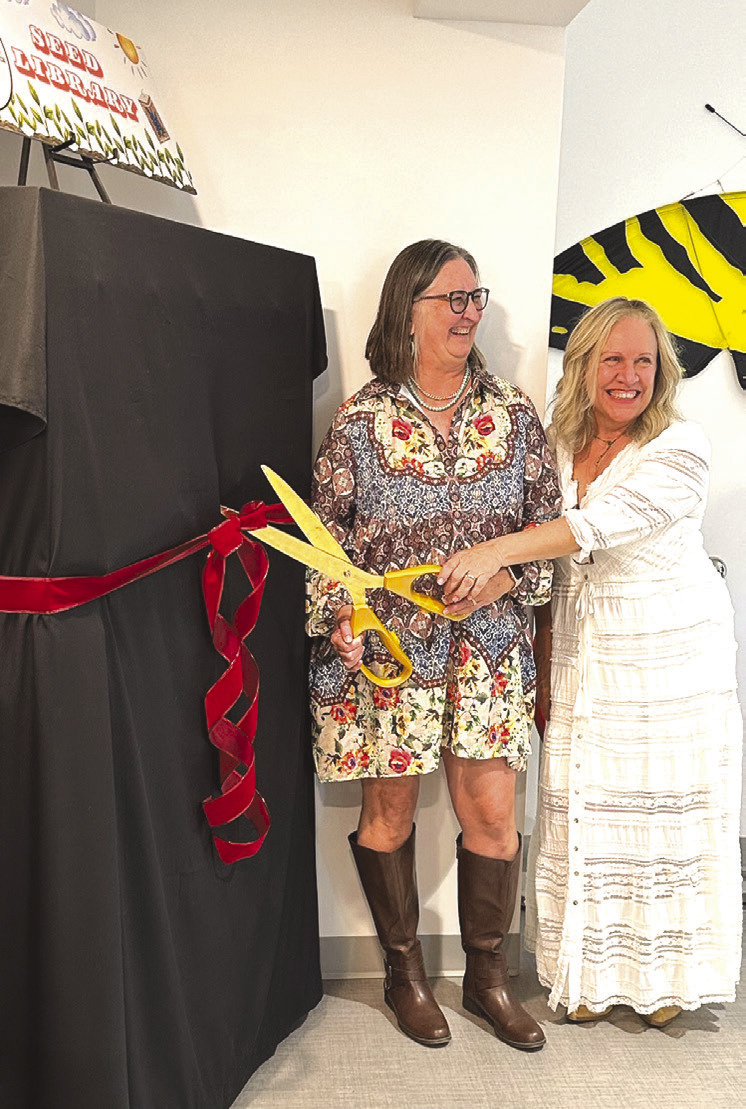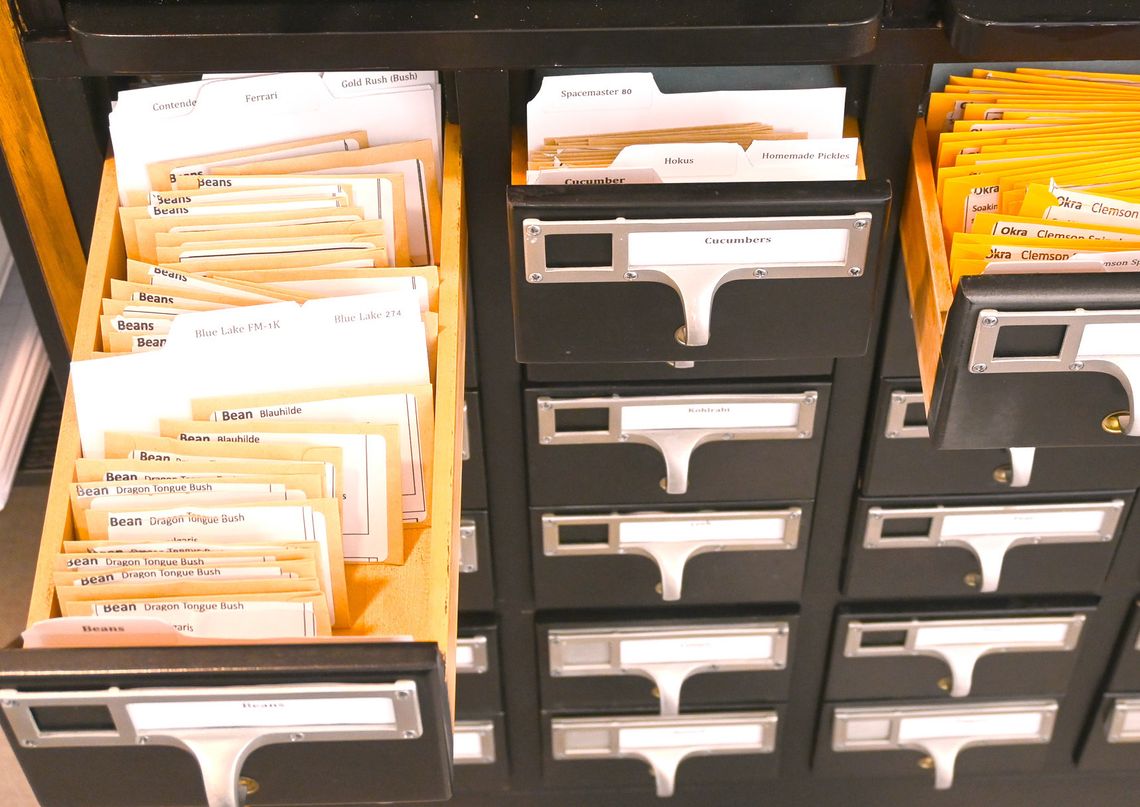In an innovative collaboration between Keep Wimberley Beautiful, the Native Plant Society of Texas and the Wimberley Village Library, a native seed library was formally installed at the library.
KWB member Madonna Lynn said in an email exchange last week that she “wanted to start the seed library to exchange seeds that were not genetically modified and to preserve seeds for future generations.”
Part of the drive to create the exchange service was to educate the community on the importance of using native seeds and her concern for the area’s water resources. “Native seeds,” she wrote, “require less water, do not need pesticides, help manage erosion and provide food for pollinators.”
“Coming from a family of seven, I grew up helping my parents put in gardens. I attribute my good health to being raised on good food that was free of pesti- cides,” she said.

In 2020, Lynn called the library to inquire about starting a seed library, but because of the COVID-19 pandemic and the construction of the new library addition, it was delayed.
When the time was more favorable to move forward with the project, KWB formed a committee of four: Kat Locke, Madonna Lynn and David and Linda Anderson. Three months later, the Seed Library became a reality. Locke knew the value of such a library when she volunteered at a library in the Dallas area.
In addition to Keep Wimberley Beautiful and the Hill Country Chapter of the Native Plant Society of Texas, expertise came from the Wimberley Apron Society, the Hays County Master Gardeners and the Hill Country Chapter of Master Naturalists.
To use the seed library, gardeners select up to five packets of seeds per growing season. Each gardener completes the Seed Library Lending Entry form in the front of a reference binder created for that purpose. After the seeds are planted and sprout, producing more seeds, gardeners return 10% of the plant’s seed harvest back to the library to ensure its sustainability.







